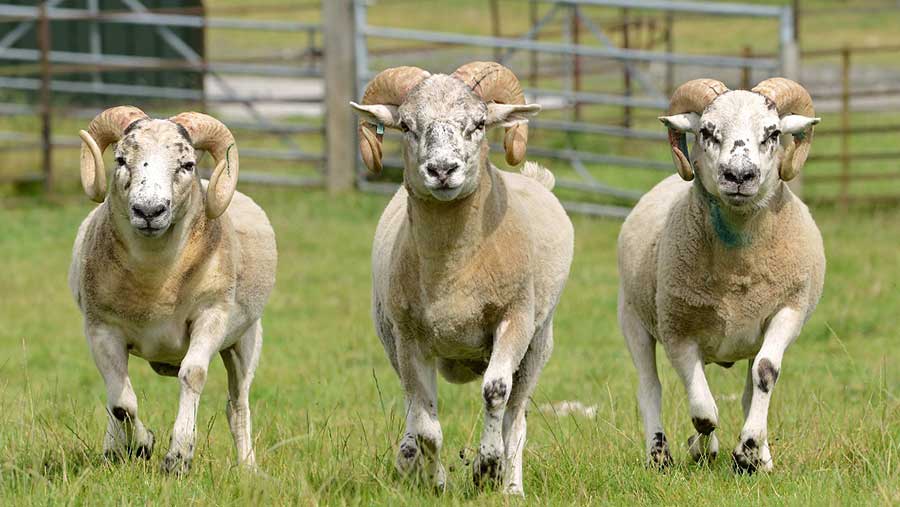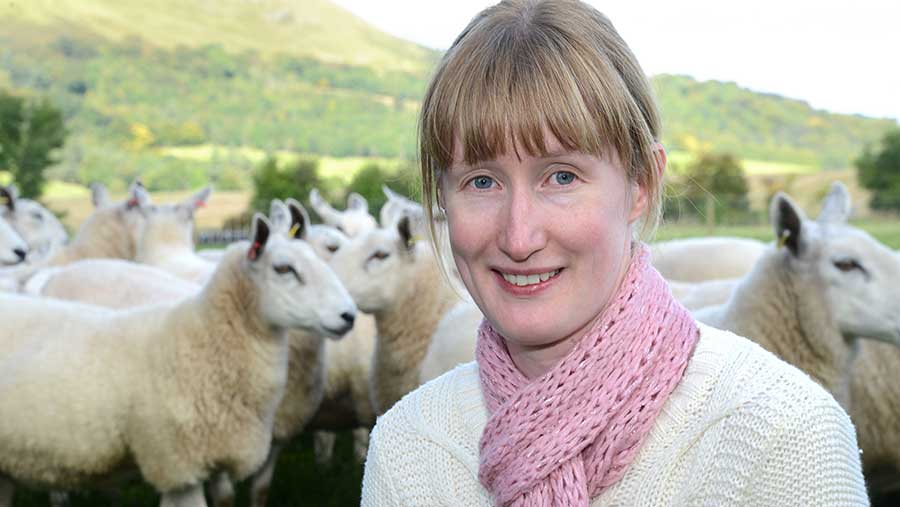Sheep gene ‘atlas’ could match cattle genomics
 © The Roslin Institute
© The Roslin Institute The UK sheep industry is being urged to work with a new free-to-access genetic database to transform the capabilities of genomics in sheep breeding.
Researchers who have recently compiled the sheep gene “atlas” say the online resource could help sheep genomics catch up with the more advanced cattle, pig and poultry breeding sectors.
The “enormous” data set is the largest of its kind in the world and can be used to identify genes that influence traits for productivity and disease resistance.
See also: Innovis completes UK’s first sheep genomics programme
The findings give insights into the function of genes linked to immunity and meat quality by focusing on RNA, the intermediate step when DNA code is translated into proteins and molecules that make up cell tissues.

Dr Emily Clark © The Roslin Institute
Project co-ordinator Dr Emily Clark of The Roslin Institute, said: “Now this stage of analysis is completed we have laid the foundations for the resource to be used by us and other livestock researchers to engage with breed societies and sheep breeding programmes more generally.
“The sheep gene expression atlas will help to unravel the genetic control of different traits in sheep, improving our understanding of hybrid vigour and antagonistic traits, for example, which could provide additional information for genomics-enabled breeding programmes in sheep.”
And while this is already being done in New Zealand and the UK with breeding company Innovis, the scale of the data set will be used to improve knowledge of how traits can be controlled in existing breeding programmes.
Cross-breeding
The project also looked at unravelling some of the complexities of hybrid vigour by investigating Scottish Blackface, Texels and the resulted cross-bred progeny.
“This information could then be used to predict which individuals might offer the best crossing potential in sheep breeding programs,” explains Dr Clark.
Dr Alan Archibald, head of genetics and genomics at the Roslin Institute, said: “This work we have done has the potential to help the sheep industry catch up with dairy cattle, pigs and poultry in the use of genomics for genetic improvement.
“Genetics-enabled improvement in sheep is possible and already being implemented in New Zealand and in the UK by Innovis, for example.”
Gene atlas explained
Unveiled at the Sheep Veterinary Society conference in Harrogate and published in the peer reviewed journal PLOS Genetics, Roslin Institute academics describe the atlas as a foundation for further discovery.
- Biggest data set of its kind from livestock genetics – all free and online
- Can be used to increase accuracy of genomic predictions
- Could help the sheep industry to understand how genetic information influences physical traits
- Adding information on genes involved in immunity, disease resistance, productivity, meat quality and genetic control of hybrid vigour
- New light shed on the roles of hundreds of genes which were previously unknown
- At a DNA level sheep have 2.5-3 billion letters in their genetic make-up. This technology focuses on around 5%
- The 5% of genes are the functional, encoding genes. By focusing on these regions the genes that influence traits in sheep can be identified that are relevant for productivity and disease resistance, for example.
